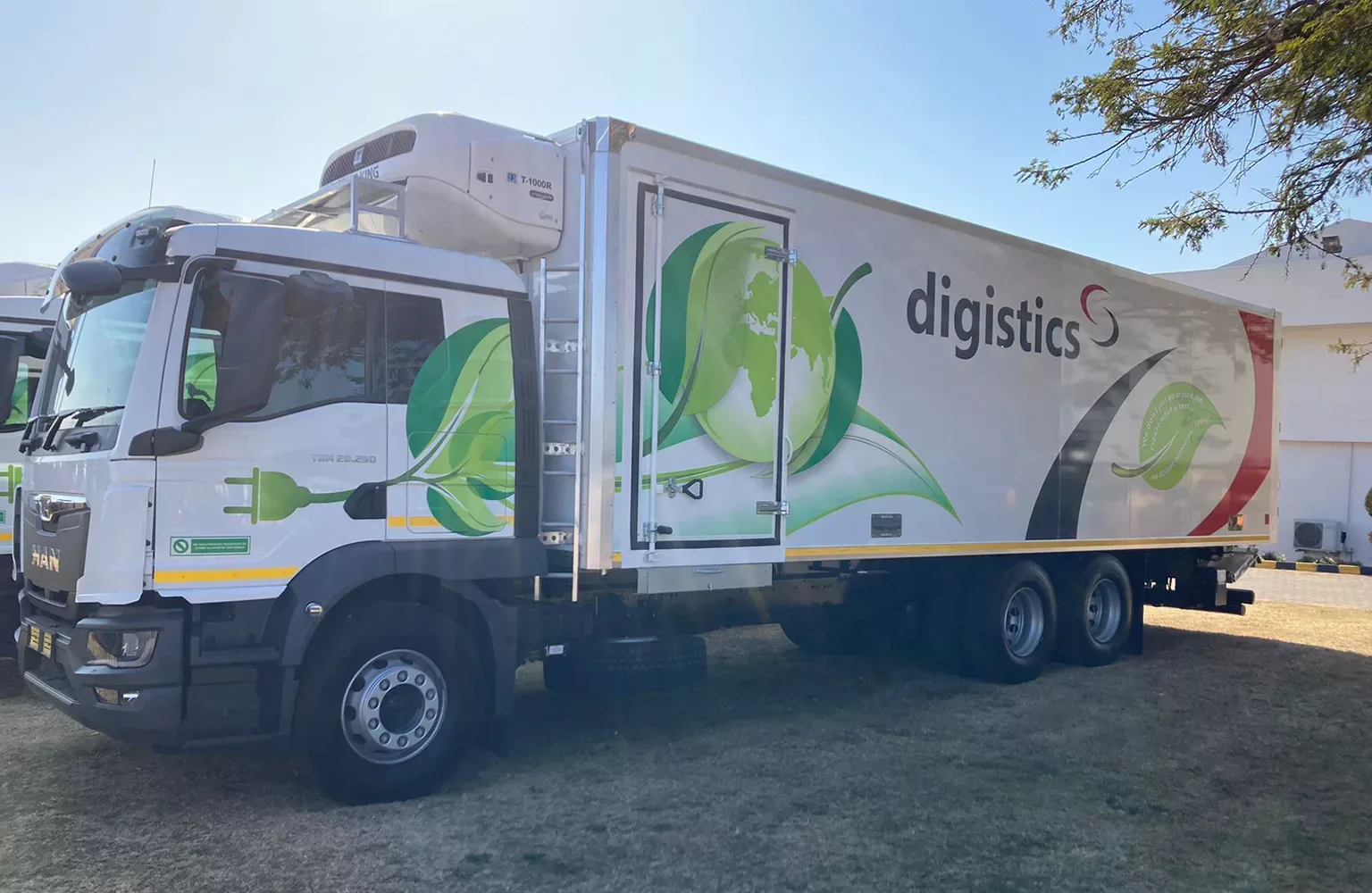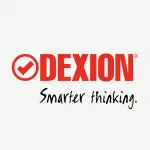Amidst a landscape of continuous economic change, electricity and water supply issues, and considerable social unrest in South Africa, Digistics has remained resilient. The company’s CEO, Renier Du Preez, tells us more.
DELIVERING SUPPLY CHAIN SUCCESS
Following considerable turbulence caused by the recent COVID-19 pandemic, supply chain operations in South Africa have seen much disruption. As companies began to source supplies more locally, new relationships were forged amidst a changing economic landscape.
Digistics, a South African supply chain and distribution operations company, has learned to quickly adapt in the face of disruption by having an astute awareness of its sales and costs, which naturally point to potential structural concerns. As a result of its continued diligence, the company remains engaged, optimistic, and enthusiastic about the supply chain industry in the country.
“The supply chain is really one of the most exciting areas to be in; there’s just so much that’s happening,” opens Renier Du Preez, CEO of Digistics.
Offering primary and secondary logistics solutions, Digistics works to promptly move products from suppliers to distribution centres. The company also has significant capacity for storage logistics solutions, and its vision to provide ‘the perfect delivery’ is enabled by prioritising its customers’ needs.
“Our mission is to provide customers with a competitively priced supply chain business solution. We try and synchronise the critical exchange between information and people,” he details.
Digistics’ main focus is on the restaurant industry, and it works with a whole host of global brands, including KFC, King Pie, McDonald’s, Ocean Basket, Burger King and Pizza Hut. Its commitment to service, quality, and cutting-edge systems and technologies allows the company to maintain strong relationships with its clients and cultivate a reputation for excellence.
With distribution centres across South Africa, in Cape Town, Durban, Gqeberha, Bloemfontein, and the Gauteng region, the company employs around 1,184 members of staff and boasts over 287 fleet vehicles across the country.
Digistics focuses on creating a highly competitive service for its customers, and with the support of its holding company, Super Group Holdings (Super Group), a broad-based supply chain management business listed on the Johannesburg Securities Exchange (JSE), has allowed it to continue to meet this objective.
“Our relationship with Super Group helps us to unlock opportunities and assists the company more widely,” explains Du Preez.
Super Group is essentially a supply chain mobility company revolving around the optimisation of supply chain processes and vehicle fleets, with a strong IT focus and technology underpin.
The supply chain division provides a platform for the group’s core expertise and offerings, which is applied to vertically integrated across companies offering logistics services across industries within South Africa.
Founded in 1986, Super Group has an international footprint and offers customers a comprehensive range of products and services. In essence, Super Group integrates supply and demand management within and across companies.
In 2012, 51 percent of Digistics’ shares were sold to Super Group, who later bought out the balance of the remaining shareholding in 2017, which has allowed Digistics to grow significantly over a short space of time.
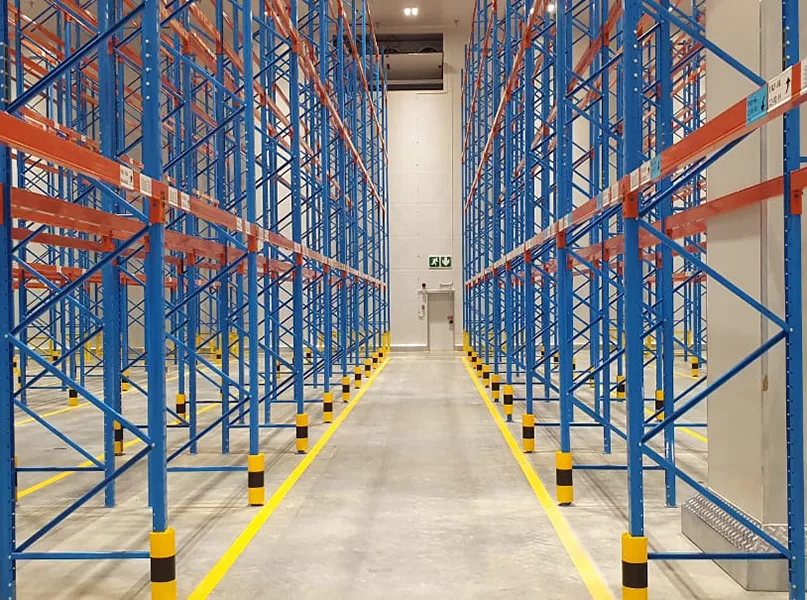
STANDING OUT FROM THE COMPETITION
Notably, Digistics’ business model sets out to define the company as a logistics partner and not just another service provider.
“We exist, live, and breathe the success of our partnerships. We’ve had 100 percent retention of all our contracts since inception and we focus on continuing to deliver customer success. It almost flows through the veins and the blood of our existence,” enthuses Du Preez.
Digistics believes that by keeping its partners’ interests at heart, it can present disruptive and tailored solutions driven by customer needs.
Something that allows Digistics to execute its quality targets consistently in a supply chain context is its vehicle design. Each vehicle allows the company to transport frozen produce and ambient product from supplier to customer without the need to mix, chill, or dry, instead prioritising product quality by keeping it chilled at the correct chill temperature.
“This is definitely something that is unique, and it talks to the quality of the food that we deliver, because we’re able to maintain the product temperature across the supply chain,” he comments.
Digistics cultivates a dedication to assured supply and delivers best-in-class solutions, as it understands that customers cannot often buy the product that they’re looking for in any other supply chain. Du Preez exemplifies this concept through one of Digistics’ global brands, McDonald’s, and its unique offerings.
“If you’re looking for milk and you can’t get it at one store, you can walk into another store and almost certainly find milk. However, if you want a Big Mac, you can only get that in one place: McDonald’s. We understand the importance of reliably providing our customers with the exact product they need.”
Digistics also considers itself to have the best technology on the market, whilst its warehouse design is based on network optimisation, informed by where customers are located to ensure best-in-class pricing.
“We are very competitive on pricing, so you’re getting the best quality and the highest reliability for that price,” he excites.
Sustainability also plays an important part in Digistics’ operations as the company works to reduce its reliance on fossil fuels, remain eco-friendly, and lower overall costs.
“Some say that sustainability is expensive, but we’ve found that, on many projects, it reduces costs in the long term,” Du Preez insights.
The company believes strongly in playing a role in creating a sustainable future for its immediate community and beyond.
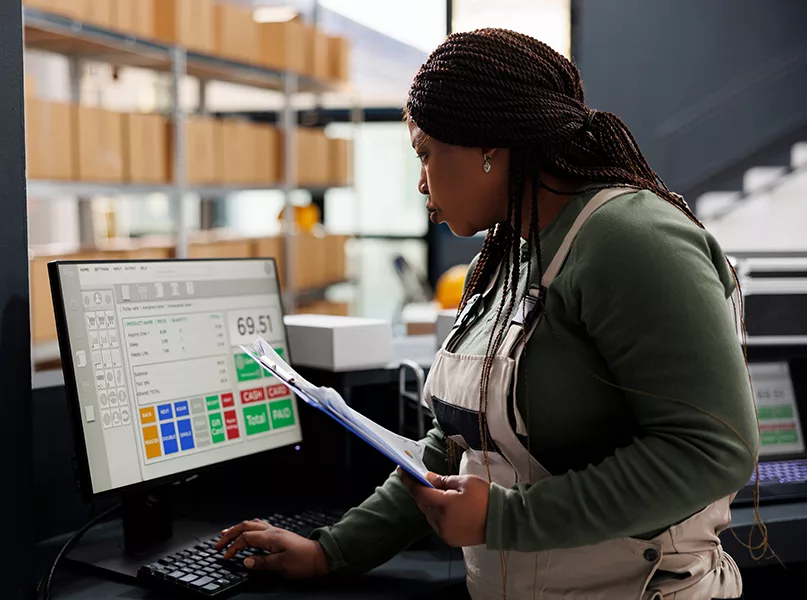
SUSTAINABILITY PROJECTS IN FOCUS
Inspired by South Africa’s historic use of local crude oil to create its own diesel, thus reducing nationwide reliance on imported fuels, Digistics has begun to engage in practices to create a circular economy within its own supply chain.
Digistics is shrewdly aware that many of its customers, such as KFC, generate a lot of waste in the form of used cooking oils and fats. Such clients are regarded advantageously, as Digistics has begun to collect the used oils to convert into biodiesel for the company’s vehicle fleet.
Use of recycled oils to power its vehicles allows Digistics to achieve lower fuel costs compared to local diesel, reduce its environmental impact, and alleviate its reliance on diesel supplies.
“This not only creates a competitive advantage but gives us unlimited access to fuel (biodiesel) should there ever be a shortage in the country or globally,” Du Preez highlights.
Digistics is also currently working on developing solar and battery storage solutions for its vehicles. The aim is to achieve one of the nation’s biggest axel-driven fleets, which is recharged by the energy of the vehicles themselves.
Motivated by similar battery recharge models in Europe, Digistics has set out to introduce four sustainable axel-driven trailers to its fleet by January 2024.
“I believe this will reduce our fuel consumption and add a lot of other benefits with regards to eco-friendliness,” Du Preez reflects.
Digistics’ sustainability projects allow the company to create a contingency, whilst reducing costs and creating value for its customers.
“That’s why we elected these projects; they’re no brainers and complement what we do as we’re able to create a competitive advantage not just for ourselves, but for our customers in the markets that they operate in,” he insists.
Each of Digistics’ distribution centres is provided with an environmental scorecard, tracking the amount of material the company recycles and reuses, its energy and fuel consumption, as well as its landfill contribution.
Additionally, the company’s sites all have an environmental management system in place and are on the way to achieving ISO 14001 certification – an internationally recognised benchmark for sustainability.
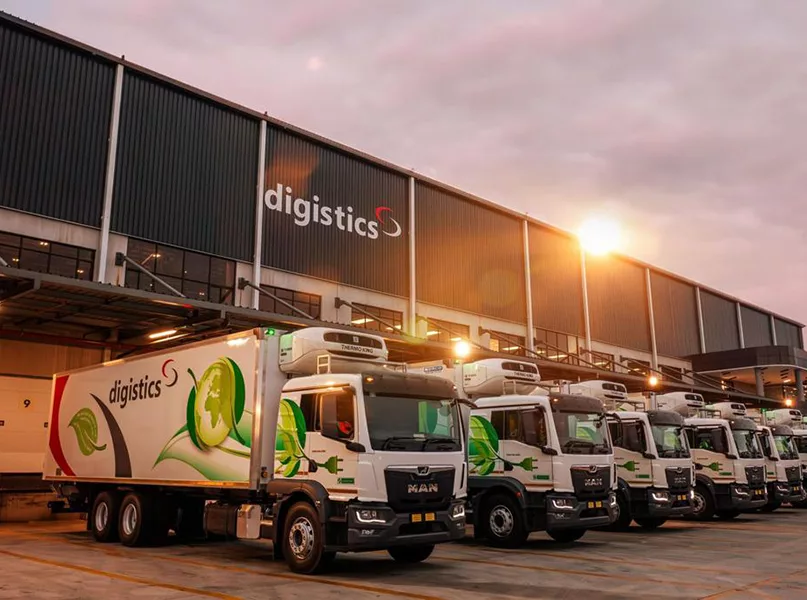
COMPANY EXPANSION
Digistics plans to expand across two facilities in the coming year, whilst a new North Distribution Centre (North DC) will extend the company’s national outreach.
A major focus for the company is the integration of solar energy within its distribution centres. In Q1 next year, it plans to implement a ZAR35 million solar battery storage system.
“Yes, it’s expensive, but the technology will allow us two hours’ worth of battery savings at night, and up to six hours in the daytime. In total, that’s about eight hours of savings,” informs Du Preez.
In the midst of national electricity price hikes, which are anticipated to raise South African electricity costs by around 14 percent in the next year, Du Preez considers Digistics’ move towards renewable energy an astute business decision.
“For every eight or nine percent that the government increases national electricity costs by, we shorten our payback period with around one year, so it really makes sense,” he explains.
Overall, Digistics has so far installed over 3,380 kilowatt hours (kWh) of solar at four of its six distribution centres, with further expansion planned for 2024, adding 7,719kWh of battery storage.
The company is also planning to expand its recycling efforts by reusing cardboard from client deliveries. However, the potential of mixing food waste with materials intended for recycling during transportation has presented an obstacle.
“You can’t put the waste in with the food that you deliver,” Du Preez explains.
“We’re looking at a partnership with a waste company where we consolidate waste collection, whilst also considering partitioning our trucks into two sections, where you can deliver from one section and collect cardboard and food waste from another.”
By streamlining its delivery and waste collection services, Digistics aims to reduce customers as well as its own emissions whilst delivering a cost saving for customers.
OVERCOMING CHALLENGES
South Africa’s electricity is supplied by Eskom, a government-owned and managed electricity company. As a growing business whose refrigerated facilities account for a large portion of its trade, Digistics’ reliance on electricity is now more critical than ever.
Amidst a national electricity shortage, considerable civil unrest has occurred in South Africa of late. The scarcity of electricity and water presents a real problem for many businesses.
“Our biggest challenge is our reliance on Eskom and anticipating a national blackout. This has pushed us into thinking more aggressively about how we embrace eco-friendly practices, whilst seeing an opportunity to create less of a reliance on Eskom by generating our own electricity.”
Digistics has created a considerable competitive advantage for itself by establishing an in-house electricity supply through the use of large solar capacity and generators that can run all night.
“Most of our customers rely on generators powered by Eskom, and as much as 60 to 70 percent of their stock is covered by these generators. There’s a very real chance that the only stock they may have left to trade with after potential blackouts will be sitting at Digistics, powered by our generators and solar reserves,” Du Preez details.
Digistics also faces challenges presented by South Africa’s water shortage, as a lot of water is used in the company’s refrigeration plant and day-to-day activities.
“We’re looking towards a bore hole and filtration solution, and we’re also using rain harvesting. A lot of rain harvesting strategies are in place at the new North DC.”
The company has installed water holding tanks of between 15,000 litres (l) to 45,000l at all its facilities. Digistics plans to hold up to 150,000l underground at the North DC to ensure it is more self-sufficient from a water supply perspective.
“By bringing a focus on sustainability to the fore, we obtain a self-sufficient mindset. I think this helps us to overcome challenges,” outlines Du Preez.
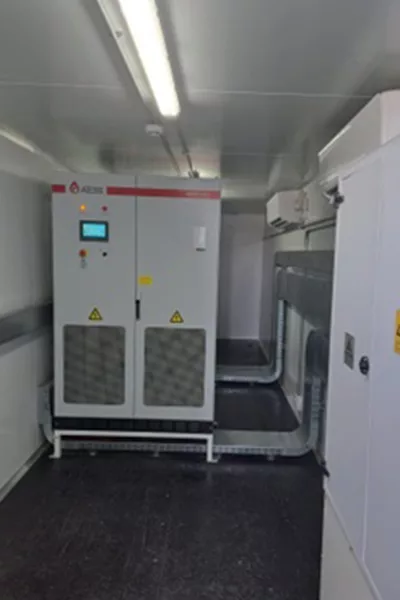
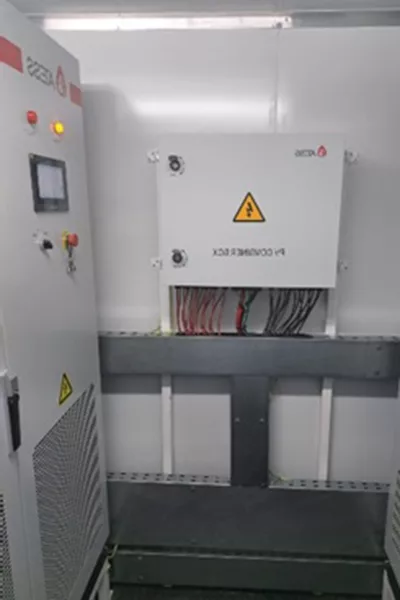
SOCIAL RESPONSIBILITY PRACTICES
The fabric of South African society has been affected by a history of apartheid and unrest. Motivated by a sense of social responsibility, Digistics has founded several initiatives with the objective of uplifting the local community.
The company’s work with Shine, a charity that focuses on improving the literacy levels of local children in third and fourth grade, is emblematic of its dedication to social work and its investment in education.
“No business can exist without strong communities. It is therefore important that we do our part to make these communities stronger,” Du Preez comments.
Additionally, Digistics’ work with Campus, a charity concerned with the care of abused women and children, provides much-needed funding to enable the charity to continue with its important work.
The company’s investment in Thousand Hills, a charity based nearby in Kwa-Zulu Natal, enables community members in surrounding towns and villages to grow their own food and become self-sufficient. In many ways, Digistics’ activities with Thousand Hills particularly resonate with the company’s own ethos of cultivating self-sufficiency and independence.
“I think it’s important for any company that operates within South Africa to be involved with charity work. You’ve got to be relevant to the community that you serve, and that’s why we’ve got quite a lot of activity in that space.
“It all starts with extensive training and a focus on extending the operating life of all our assets,” Du Preez reflects.
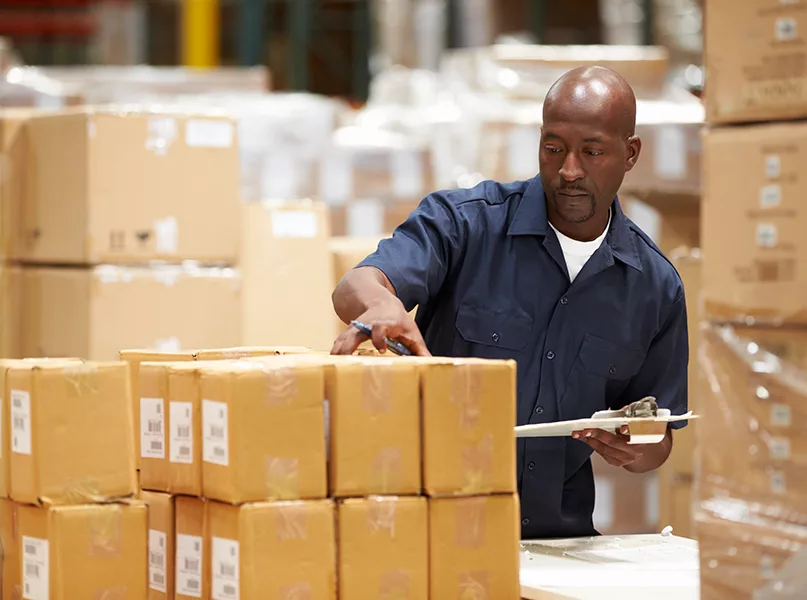
PRIORITISING PROCUREMENT
Naturally, Digistics has a large supply chain operation, and benefits from keeping an in-house procurement team, which allows the company to maintain control over its finances.
“Procuring the stock and selling it on means that 85 to 89 percent of our turnover is paying for stock. Managing the working capital is therefore critical and can only be done with an in-house procurement team,” he explains.
Assured supply is what drives the business and allows Digistics to closely monitor its products, processes, and performance.
“Our core existence is based around assured supply. If we can see the product, we know when we’re going to run out or where there’s challenges,” states Du Preez.
“This allows us to trigger contingency and make sure we can guarantee supply to our clients.”
The company’s focus on assured supply enables it to obtain best-in-class pricing, and independently manage its value proposition to customers.
Looking ahead, Digistics intends to accelerate its sustainable biodiesel project with an international roll-out. In partnership with its parent company, Super Group, the company is looking to implement the biodiesel initiative more widely across the company’s whole fleet.
In addition, Digistics is consolidating its plans to build the new North DC by merging two of its large, older facilities.
“Again, the North DC is focused on the very best that we can get out of sustainability and energy reduction,” emphasises Du Preez.
Furthermore, the company is seeking to expand more widely within Africa and further into Europe.
“This is a top priority for us because at the end of the day, we’ve got to deal with challenges and expanding the business will help us to do that,” he expands.
Digistics is also expanding its information technology and control tower capabilities. At present, the company has a lot of control tower capability, and this plays a large part in how it manages day-to-day planning, function, and physical execution of its processes.
“We look for those areas where we can add value to current customers, how we can package their offering, developing disruptive capability, and then grow market shares where the opportunities exist,” Du Preez concludes.



